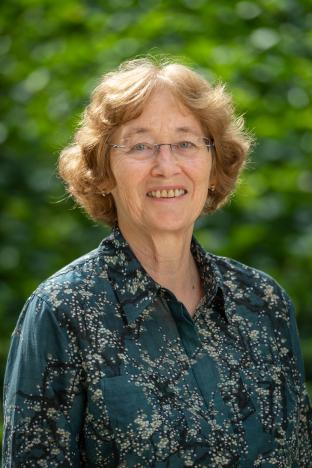Administrative demands have increased over the years, getting more complex and harder to navigate. In 2022, U-M Michigan Medicine and Medical School Faculty Survey showed that these requirements are a recurring source of frustration and contribute to faculty burnout. The University is seeking ways to address this issue and is seeking suggestions and recommendations from faculty.
Margit Burmeister, Ph.D., Associate Chair and Professor of Computational Medicine and Bioinformatics, and Brigid Gregg, M.D., Assistant Professor of Pediatric Endocrinology, joined the U-M Michigan Medicine Wellness Office as Faculty Associates, for one year starting July 1, 2023. They will co-lead an initiative to tackle administrative burden on faculty and advocate for practical recommendations. In this role, Burmeister is soliciting basic science faculty members in the Medical School to contact her directly with any issue with administrative processes that they’d like to see addressed: [email protected]. Similarly, Gregg is asking physician faculty members to contact her with their own administrative issues: [email protected]. Examining administrative burden for both clinical and basic science faculty is important because faculty who are physician scientists complete an array of administrative tasks.
Several surveys have been conducted to find out about administrative burdens, but ironically, in themselves, questionnaires constitute yet another demand on faculty. For Burmeister, it is time to ”do something,” rather than “studying.”* Based on many conversations with colleagues across departments and with over 30 years of experience as a faculty member with joint appointments within the Medical School, Burmeister can already list target actions. These are either at the level of funding agencies, or within the University’s higher administrative units, or at departmental level.
For example, she identifies the need for streamlining communication channels within U-M administrative office staff who are working remotely, namely HITS, Shared Services, benefits office, and HR.
For collaborative research, the decision whether each site does their own IRB or one site becomes a parent IRB to which other IRBs defer, data sharing agreements, material transfer agreements, or inter-institutional agreements are complex, and having guidance when to do which would help alleviate burden.
Other administrative areas concern our international students who often need to wait for a visa for longer than their approved vacation time when traveling home to see relatives after years.
As the Director of Wellness and Culture in Pediatrics Dr. Gregg has been soliciting feedback from faculty in her department about aspects of work that contribute to burnout. Among these are administrative tasks like annual mandatory training modules and meeting scheduling. Among the top 10 areas of concern on the department annual survey were clerical burden, patient scheduling and inadequate staffing. Finding solutions in these critical areas could go a long way to improving clinical faculty wellness.
To address administrative burden, the Department of Computational Medicine and Bioinformatics is also currently developing an internal website (SharePoint) that will serve as a consolidated source of information. It will answer most frequently asked administrative questions, explain processes, and clearly state administrative expectations. This site will be launched over the summer 2023, and feedback from users will be sought out.
Burmeister and Gregg are grateful for the support of the Michigan Medicine Wellness Office that is dedicated to improving workforce well-being, reducing professional burnout, and creating a caring, safe environment where all faculty, staff and learners at Michigan Medicine can thrive. The Wellness Office focuses on making workforce well-being part of your experience while providing excellent patient care, work, education, and research across Michigan Medicine.
For more information, please contact Margit Burmeister at [email protected].
*Related publication:
Sheehan KA, Schulz-Quach C, Ruttan LA, et al. “Don’t Just Study our Distress, Do Something”: Implementing and Evaluating a Modified Stepped-Care Model for Health Care Worker Mental Health During the COVID-19 Pandemic. The Canadian Journal of Psychiatry. 2023;68(1):43-53. doi:10.1177/07067437221111372

